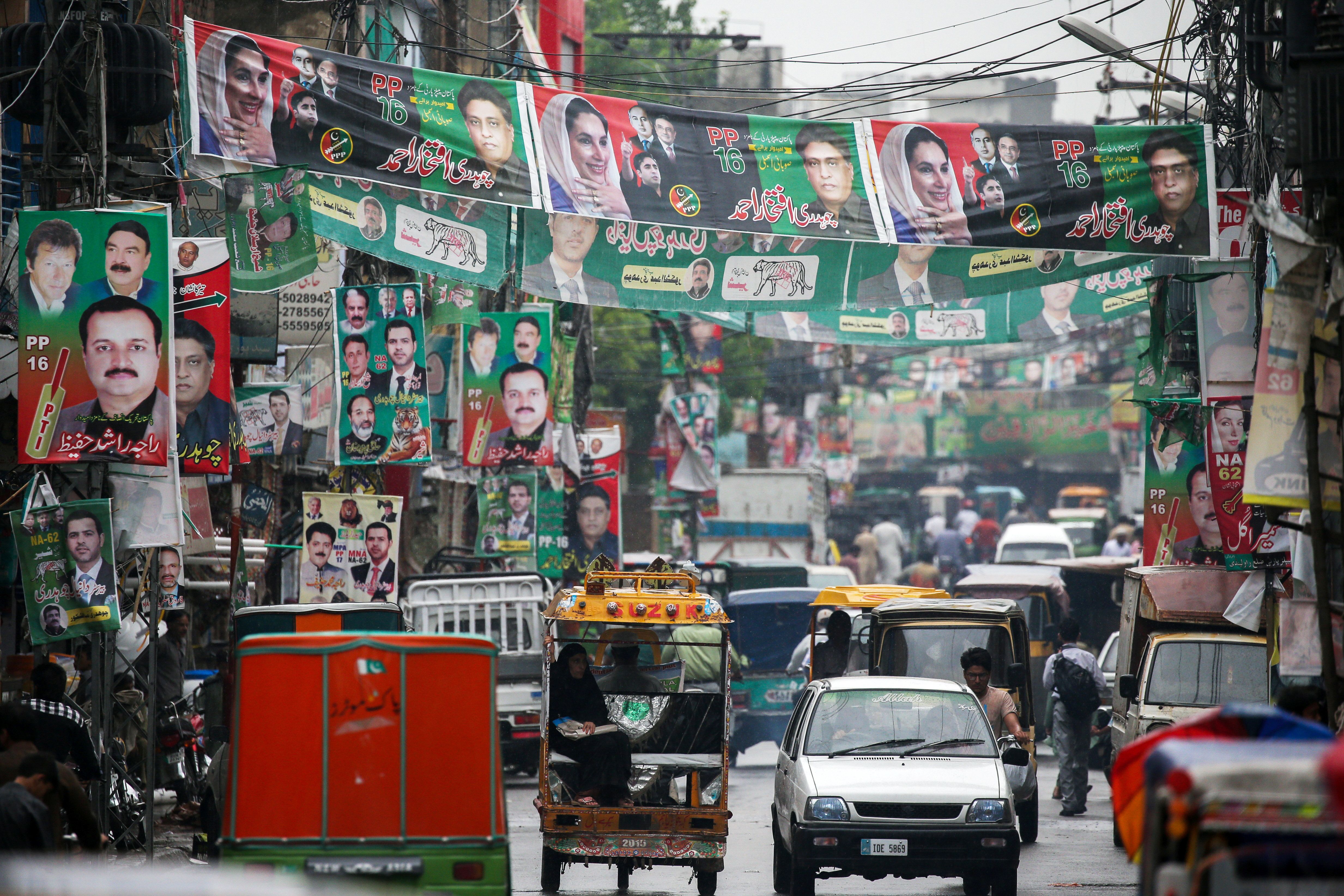On Wednesday, Pakistan heads to the ballot box for what will be the country’s second ever peaceful democratic handover of power in its 71-year existence. The election presents the opportunity to establish a more open and pluralistic democracy in a country historically dominated by the military and a cadre of elite families.
The presumptive frontrunner, Imran Khan, is an Oxford-educated former star cricketer, whose improbable candidacy has broken the stranglehold of the country’s two dominant political parties. Khan’s Pakistan Tehreek-e-Insaf (PTI) party is currently polling neck and neck with that of recently jailed former Prime Minister Nawaz Sharif. To win, a party must earn the 137 directly elected seats needed to secure a majority in the National Assembly, or else jockey for the post-election support of other parties.
But if Khan represents a breath of fresh air, this election season has been marred by something all too typical in Pakistan: the long arm of the military. Over the past few weeks, there have been numerous reports of the military influencing politicians and voters to aid Khan’s candidacy. A record 370,000 soldiers (up from 70,000 in 2013) are expected to be deployed to polling stations, and the military has been granted broad authority to detain anyone they deem has committed electoral violations–inflaming fears of widespread voter intimidation.
After the controversial ouster of the previous prime minister, Nawaz Sharif, in which many suspected military involvement, it bears asking whether the powers that be are simply exchanging one favorite son for another. Pakistan’s next prime minister will face some serious challenges – from an increasingly unsustainable domestic debt, to a deterioration in relations with the US, to the ongoing Taliban insurgency in Afghanistan.
But the most important test may well be whether he can set the country down a path toward a more stable and inclusive politics. That will have to start with loosening the military’s iron grip on power.
